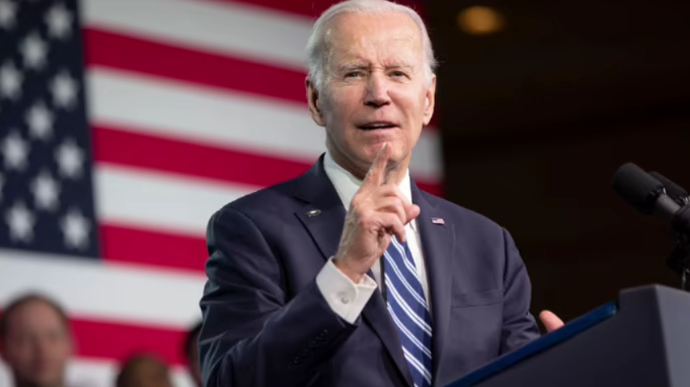The Biden Administration’s War-Funding Gambit: A Betrayal of Taxpayer Trust
the Biden administration has set in motion a plan to funnel an exorbitant $100 billion of American taxpayer money into funding not one, but two wars. Amidst growing skepticism about the efficacy and necessity of these military involvements, questions abound about the true motivations driving this costly decision.
Reports from the Capitol indicate that the proposed supplemental funding package is set to allocate a staggering $60 billion for Ukraine, a country embroiled in a bitter and protracted conflict with Russia. Simultaneously, a significant portion, approximately $40 billion, is slated for allocation to Israel, Taiwan, and the U.S.-Mexico border, raising eyebrows and sparking intense debate about the priorities of the current administration.
A vocal faction of Congressional Republicans has expressed reservations about the substantial funding designated for Ukraine, emphasizing the need to replenish munitions that have already been dispatched to Europe. While assurances have been made that a portion of the allocated funds will be channeled into this purpose, there remain concerns that the weaponry could be repurposed for conflicts beyond the scope of the initial intent, potentially destabilizing regions far from the European theater.
This controversial move has laid bare the deepening divisions within the Republican ranks, as key figures grapple with the ongoing dilemma of whether to prolong U.S. involvement in the Ukrainian conflict. Despite the administration’s assurance of over $75 billion already allocated to Kiev, a fresh demand for additional billions has stoked the fires of controversy and skepticism within the corridors of power.
The timing of this funding proposal has also raised suspicions, with an expedited push to gain approval before a crucial bipartisan Senate delegation departs for the Middle East. The rushed nature of these proceedings suggests an urgency that leaves little room for transparent deliberation and critical scrutiny, leaving taxpayers to wonder if their hard-earned dollars are being diverted towards murky geopolitical maneuvers without their explicit consent.
As the Biden administration gears up to formally submit this $100 billion supplemental request to Congress, it must reckon with the growing chorus of voices demanding accountability and transparency. With mounting concerns over the administration’s foreign policy strategy, it is imperative that lawmakers and citizens alike remain vigilant to ensure that taxpayer funds are not squandered in pursuits that lack clear justifications and tangible benefits for the American people.
The appropriation of such a colossal sum for foreign military endeavors demands a comprehensive and candid explanation from the highest echelons of power. The American public deserves nothing less than full transparency and accountability in matters that directly impact their financial well-being and global standing. It is only through robust dialogue and unwavering oversight that the trust of the American taxpayer can be upheld and the true motives behind these unprecedented funding allocations brought to light.





